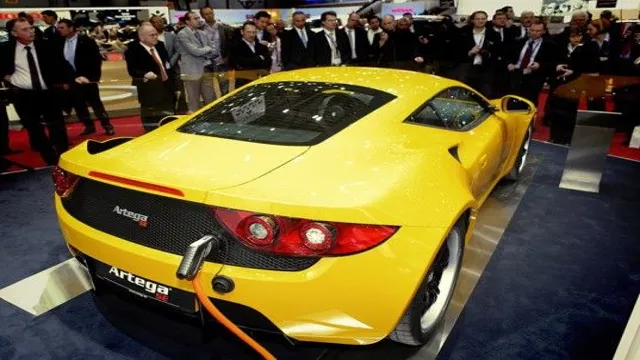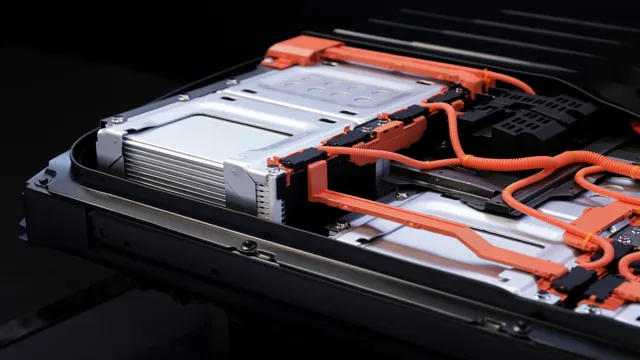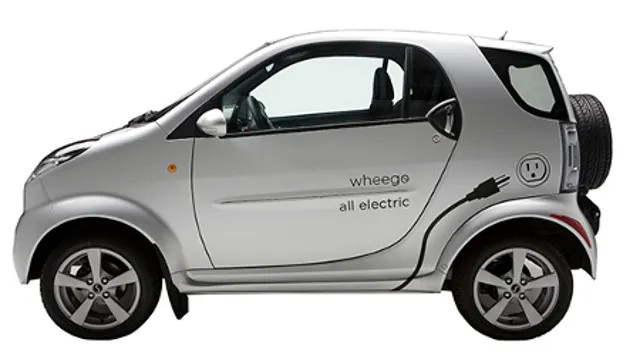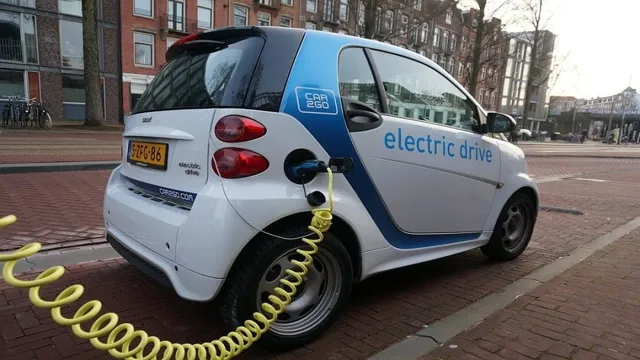Revolutionizing Transportation: Why Electric Cars are the Future of Mobility and Disrupting the Industry
Electric cars have become more than just a passing trend. They’re a disruptive technology that’s transforming the automotive industry as we know it. The growing demand for environmentally friendly, sustainable transportation options has paved the way for electric cars to take center stage.
They’re no longer reserved for eco-conscious individuals; instead, they’re becoming mainstream and preferred by people from all walks of life. Electric cars operate on batteries, making them energy-efficient, cost-effective, and low-maintenance compared to their gas-guzzling counterparts. Additionally, with renewable energy sources such as solar panels, electric cars are an even more attractive option.
The introduction of electric cars has disrupted traditional means of transportation, paving the way for new and better innovations in the automotive industry. The shift towards electric cars is changing the way we think about transportation and the impact we have on the environment. In this blog, we’ll explore the impact of electric cars as a disruptive technology in the automotive industry and how they’re contributing to a more sustainable future.
We’ll delve into the benefits of electric cars, advancements in electric car technology, and the future of the industry. Join us as we explore the world of electric cars and the impact they’re making on our world.
What is Disruptive Technology?
The electric car is a prime example of disruptive technology. Disruptive technology is any innovation that shakes up the established market by replacing an existing product or service with something better, more efficient, or less expensive. In the case of the electric car, it is disrupting the existing market dominated by traditional gas-powered vehicles.
Electric cars have many advantages over their gas-powered counterparts, such as zero emissions, lower operating costs, and a quieter ride. As more and more consumers become environmentally conscious and as battery technology continues to improve, the electric car is poised to become even more disruptive, possibly displacing gas-powered cars altogether. While change can be challenging, embracing disruptive technology can lead to incredible advancements and ultimately improve our lives.
Defining Disruptive Technology
Disruptive technology refers to an innovation that disrupts existing market patterns and shake-ups the industry. It’s a game-changer that alters the way businesses operate and create new markets. Disruptive technology creates a radical shift in the market and changes the way businesses work.
Take, for instance, the introduction of smartphones, which changed the way we communicate and access information. Disruptive technology can be challenging to understand, but it’s essential to keep up with the latest trends to stay competitive. Companies that ignore disruptive technology can quickly fall behind their competitors.
It’s crucial to understand the benefits of disruptive technology, which can create new opportunities and drive growth. Organizations that embrace disruptive technologies benefit from increased productivity, improved customer satisfaction, and better financial performance. Therefore, it’s vital to keep pace with the rapidly evolving technological world to remain competitive.

Examples of Disruptive Technologies
Disruptive technology refers to any innovation or technology that fundamentally changes the way we live, work, or interact with one another. These technologies disrupt traditional business models and create new markets and new ways of doing things. One prime example of a disruptive technology is the internet.
The internet has revolutionized the way we communicate, shop, and learn. It has also given rise to new industries, such as online streaming, e-commerce, and social media. Another example is smartphones.
Smartphones have disrupted the traditional phone market by combining multiple functions into one device. They have also created new applications and opportunities, such as mobile banking and mobile gaming. Other examples of disruptive technologies include renewable energy, 3D printing, and artificial intelligence.
These technologies have the potential to transform our world and change the way we live for the better.
Electric Cars and Disruption
The electric car is a disruptive technology that has the power to transform the entire automotive industry. Not only does it offer a more environmentally friendly and sustainable form of transportation, but it also requires a completely different infrastructure for charging and maintenance. The traditional combustion engine is becoming outdated as battery technology improves, and therefore, we can expect to see a shift in consumer demand towards electric vehicles.
This shift will also have an impact on industries beyond just automakers, such as oil and gas companies that fuel traditional cars. The rise of the electric car may take some time, but it is a necessary step towards a sustainable future, and we can already see the effects of this disruption, for example, with Tesla’s success in the market. Overall, the electric car is not just a trend but a real force for change, as it offers an alternative to fossil fuels and a more sustainable way of living.
Benefits of Electric Cars
Electric cars are set to disrupt the automotive industry as we know it. Many benefits come with this technological advancement, such as reduced emissions, lower maintenance costs, and increased energy efficiency. The electricity used to power these vehicles can come from renewable sources, making them a more environmentally friendly option.
The range of electric cars has improved drastically in recent years, making them more practical for everyday use and long-distance travel. Additionally, electric cars have fewer moving parts and are simpler in design, resulting in fewer breakdowns and lower maintenance costs. With the rise of electric cars, we are seeing a shift towards a cleaner and more sustainable future.
The benefits of driving an electric car outweigh the initial investment, and this shift towards electric vehicles will inevitably result in a more sustainable future for generations to come.
Disrupting Traditional Automakers
As the world shifts towards cleaner and more sustainable energy, the traditional automakers are feeling the heat. Electric cars have arrived and they are disrupting the industry as we know it. Tesla is a prime example of a company that has shaken up the market with its innovative approach to electric cars.
Traditional automakers are working hard to catch up, but the damage has already been done. The shift towards electric cars is a move towards a more environmentally friendly future and it cannot be stopped. The revolution has already begun, and it is up to the automakers to adapt and stay relevant in this new landscape.
Those who don’t risk being left behind and becoming obsolete. It’s time for traditional automakers to make a change, embrace electric cars, and take control of their future in this rapidly evolving industry.
Impact on Oil Industry
Electric cars are disrupting the traditional oil industry. Thanks to the increasing popularity of electric vehicles, oil companies are feeling the heat as consumers become more environmentally conscious. For decades, the oil industry has enjoyed a dominant role in transportation and energy production.
However, electric cars are changing the game and posing a significant threat to the status quo. As more and more drivers switch to electric vehicles, oil companies are being forced to rethink their long-term strategy. Some are investing in renewable energy, while others are diversifying into other areas such as chemicals and plastics.
Despite these efforts, the uncertainty surrounding the future of the oil industry remains high. With so many variables at play, it’s difficult to predict the impact that electric cars will have on the global energy landscape. Nevertheless, one thing is for sure; electric cars are here to stay, and the oil industry will need to adapt quickly if it wants to keep up.
The Future of Electric Cars
The electric car is a disruptive technology that is revolutionizing the automotive industry. As technology advances, the cost of electric cars continues to decrease, making them increasingly affordable and attractive to buyers. Many countries are implementing policies to reduce the use of fossil fuels, with some even considering phasing out petrol and diesel-powered cars altogether in the coming years.
In addition to their environmental benefits, electric cars are also known for their smooth and quiet rides, and they require very little maintenance compared to traditional cars. However, the widespread adoption of electric cars still faces some obstacles, such as a lack of charging infrastructure, limited driving distance before needing to recharge, and high upfront costs. Nonetheless, many tech innovators and automakers are racing to develop batteries that can store more energy, enabling longer driving distances between charges.
With these advancements, electric cars will become even more practical and accessible to everyday drivers, paving the way for a cleaner, more sustainable future on the roads.
Projected Growth and Adoption
When it comes to the future of electric cars, the projected growth and adoption is looking promising. With advancements in technology, electric cars have become more affordable, efficient and environmentally friendly. The market for electric vehicles is expected to grow significantly in the coming years.
In fact, according to a report by Bloomberg New Energy Finance, electric vehicles could make up a quarter of the world’s entire car fleet by 2040. Many countries are also committing to phasing out gasoline-powered cars with the aim of reducing carbon emissions and combating climate change. As such, governments are providing incentives such as tax breaks, subsidies and investments in electric car infrastructure to encourage more people to switch to electric.
With lower fuel and maintenance costs, longer ranges and increasingly convenient charging options, it’s no surprise that electric cars are becoming more appealing to consumers. In the years to come, we can expect to see even more exciting developments in electric car technology, making it an increasingly attractive option for drivers.
Advancements in Battery Technology
Advancements in Battery Technology are creating a bright future for Electric Cars. With the development of more efficient and powerful batteries, Electric Cars will soon become the norm. The main keyword used in this topic is “Electric Cars.
” As battery technology keeps evolving, Electric Cars are becoming more practical and sustainable. Current developments suggest that in the near future, Electric Cars could be charged in the same amount of time as traditional fuel cars take to refuel. The future of Electric Cars is looking brighter with the breakthroughs in battery technology, which will make them cheaper and accessible for all.
This means that Electric Cars will no longer be a luxury reserved for the wealthy but will become an affordable and eco-friendly alternative to traditional fuel cars.
Conclusion: The Disruptive Power of Electric Cars
In conclusion, electric cars are the ultimate disruptor in the automobile industry. They are shaking up the traditional combustion engine game and paving the way for a greener and more sustainable future. By challenging fossil fuel dependency and promoting efficient, renewable energy sources, electric cars are revolutionizing the automotive landscape.
Plus, they offer instant torque and silent operation, which is a refreshing change from the somewhat dull driving experience of traditional cars. So, if you’re not already an electric car convert, it might be time to plug in and take the leap into the world of disruptive technology!”
FAQs
What is a disruptive technology?
A disruptive technology is one that fundamentally changes the way things are done in a particular industry.
How do electric cars qualify as a disruptive technology?
Electric cars completely disrupt the traditional internal combustion engine and fossil fuel-based transportation industry by introducing a new, more energy-efficient and sustainable form of transportation.
What are some of the advantages of electric cars over traditional gas-powered cars?
Electric cars produce no emissions or pollutants and are much cheaper to maintain than traditional gas-powered cars. They also have the potential to revolutionize the energy industry by allowing for more widespread use of renewable energy sources.
What are some of the challenges facing the adoption of electric cars?
One of the biggest challenges facing the adoption of electric cars is the lack of infrastructure, such as charging points and battery swapping stations. Another challenge is the relatively high cost of electric vehicles, although this is expected to decrease in the near future.





